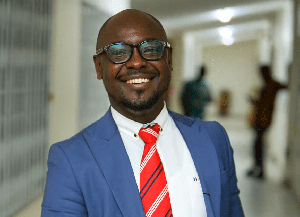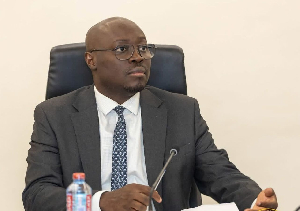More than 60 researchers drawn from Ghana, Burkina-Faso, Togo, Cameroon and Germany, have converged at the University for Development Studies (UDS) in Tamale for the 2014 Summer School to discuss common areas of research.
During the five-day Summer School, the researchers would discuss research findings on challenges in West African Urban Agriculture, and to suggest ways of improving urban food.
The focus of the summer school is on UrbanFoodplus, which is an African-German partnership, and is financed by the German Ministry for Education and Research.
UrbanFoodPlus is a multi-disciplinary network of German-African and international scientists, private sector representatives and stakeholders, aimed at developing site-specific, farmer-tailored innovations for improved agricultural production, food safety and value chains.
Professor Haruna Yakubu, Vice Chancellor of UDS, who opened the school in Tamale on Monday, underscored the importance of research to the socio-economic development of the country, and called for closer collaboration amongst researchers to find lasting solution for improved food yields.
He said UDS would continue to embark on programmes that would benefit society and that the annual summer school was one of such programmes that aimed at bringing researchers from varied backgrounds and different countries to share common areas of research findings.
He said the aims and objectives of the summer school, among other things, were to forge a complex interaction between socioeconomic and ecological factors and processes in Urban and Peri-urban Agriculture (UPA) systems, which had received increasing attention from researchers and policy makers worldwide, particularly in West and East Africa.
Professor Bernd Marshner, a Soil Scientist and coordinator of the UrbanFoodplus project said UrbanFoodplus was an international research project, “African-German partnership to enhance resource use efficiency in urban and peri-urban agriculture for improved food security in West African cities”.
He said the systems provided food, employment, social functions and biodiversity refuges within cities, but limited knowledge existed on UPA’s contribution to enhance poor people’s livelihoods and food security and reduce potentially negative environmental externalities.
Professor Marshner said more research was needed on resource use efficiencies and matter flows within UPA since little was known about UPA-related income effects and economic exchange relationships within UPA systems themselves, as well as between UPA systems and farming systems at the outer border of the peri-urban space.
He said in West African urban agriculture, irrigation with untreated waste water posed health hazards and the associated nutrient loads were not used efficiently and that due to their high specific surface area, biochars had a potential for removing pathogens from waste water, while at the same time being loaded with nutrients.
He said combining biochars use for on-site wastewater treatment and subsequent soil amelioration might provide a simple and efficient option for enhancing crop production and food safety in urban agricultural systems
Some PhD students, post-doctoral researchers and professors from four German universities are partnered with various African institutions in Ghana involving the University for Development Studies, University of Ghana, Kwame Nkrumah University of Science and Technology and the Soil Research Institute of the Council for Scientific and Industrial Research.
The International partners include the International Water Management Institute, the World Vegetable Centre and the Resource Centres on Urban Agriculture and Food Security (RUAF).
The Summer School is a week-long forum, which will see those partners showcasing their works.
Regional News of Thursday, 2 October 2014
Source: GNA
UDS Summer School opens in Tamale
Entertainment











